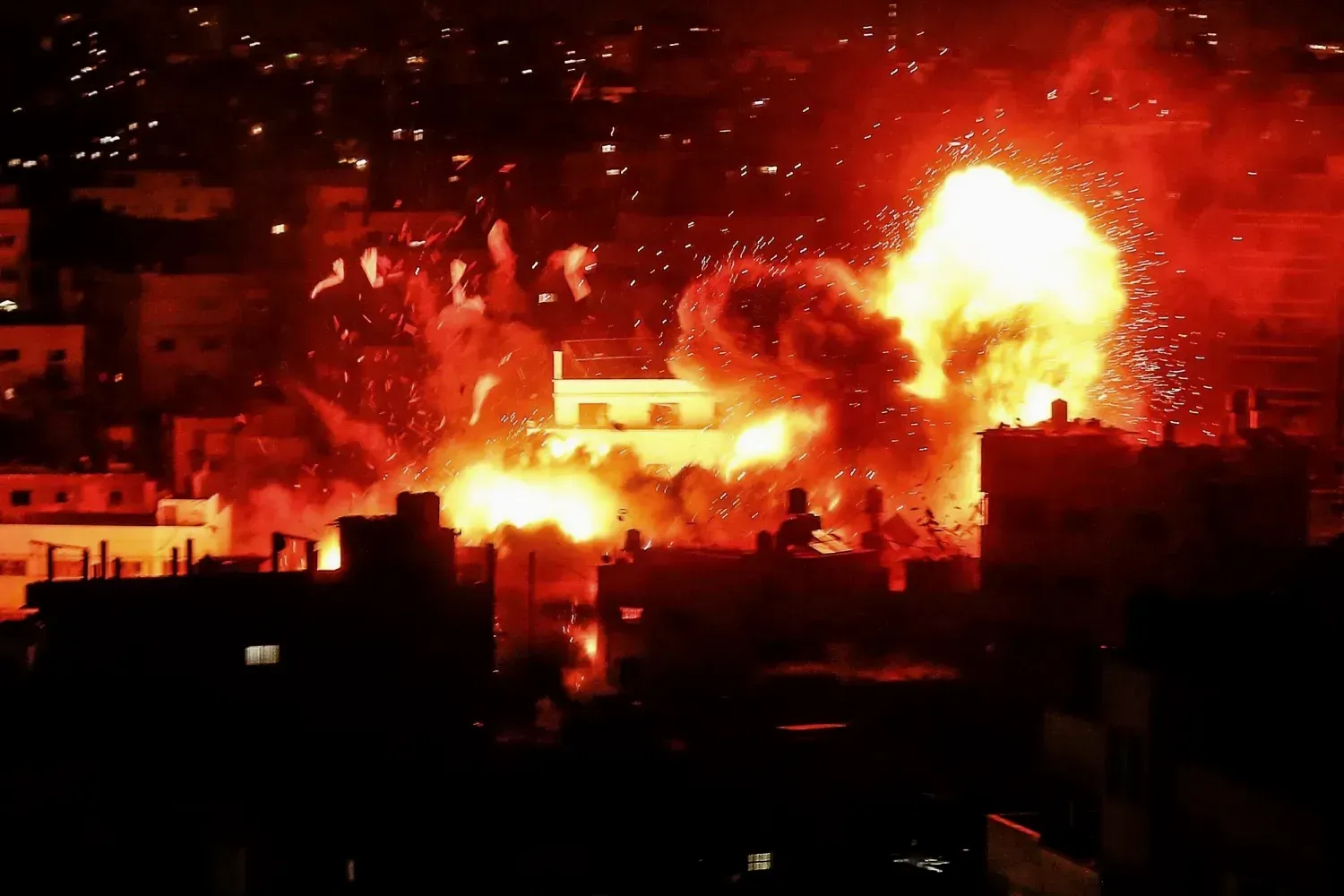Surah Al-Buruj and Gaza: Faith through Fire

Surah Al-Buruj, the eighty fifth chapter of the Qur’an, is a surah that does not just simply speak to our notions of logic and reason but rather reverberates through the chambers of our hearts. A short, striking passage that tells the story of believers thrown into a fiery pit, simply because they refused to abandon their faith and values. It is a surah of celestial imagery and brutal persecution. And in today’s world, Surah Al Buruj does not have a greater impact than in our understanding of the genocide against the Palestinian people in Gaza right now.
"By the sky full of constellations" (85:1)
The surah opens with an oath. The Arabic 'al buruj', refers to something elevated, visible, fortified and expansive. Traditionally, it was used to describe tall towers or watch posts, places of visibility and grandeur. In the Quran, it’s often interpreted as the great constellations, quietly bearing witness.
Ibn Kathir wrote that these stars are “signs of divine precision, strength, and surveillance.” And so, the surah begins by drawing our gaze upward, reminding us that even if the dunya below is evil and chaotic, the heavens are not indifferent. Every tyrant, every martyr, every fiery trench is seen.
In the heart of Surah Al-Buruj we find a distressing story.
“Condemned are the makers of the ditch, the fire filled with fuel, when they sat by it, watching what they did to the believers.” (85:4–7)
These believers were burned alive, simply for saying, "There is no God but Allah". The Quran does not dwell on their screams or the cruelty of their killers. Instead, it highlights the strength of their faith.
It’s not difficult to see the flames of Gaza in these verses. Not just in the missile craters or bullet wounds, but in the steadfastness.
Just as the people of the trench held onto their tawhid, we see in Gaza a people who cling to their faith, while the world around them collapses. Families reciting Quran in obliterated 'homes'. Mothers thanking Allah over the graves of their incinerated children. "Alhamdulillah", exclaims Gaza.
These images are painful, but they are powerful. Like the companions of the trench, the people of Gaza are enduring something few of us can even try to imagine and their faith has not shattered under its weight, rather it proliferates.
“...they resented them only because they believed in Allah…” (85:8)
In our time, the Palestinian people have become the target of a similar, unjustified hatred. Their faith, their resistance and their refusal to surrender are seen as threats. The response has been unrelenting violence, bombardments, blockades, desecration of the dead, imprisonment without trial, destruction of hospitals; ethnic cleansing and genocide.
The Quran reminds us that such hatred of faith is not new. We know the oppression of the believers has always been part of the test of this world. But Allah promises us that He sees, He knows, and He does not forget.
Surah Al-Buruj doesn’t just tell a story. It holds up a mirror. It asks us, as readers and believers, where do we stand? Are we among those watching in silence? Are we numbed by the repetition of evil? Have we become insouciant to the trenches of our time?
The people of the trench were not saved in this world. Their victory was clearly not of this world. They refused to give in.
And, too, for the people of Gaza worldly relief seems distant. But again their reward is already written and the surah tells us such;
“Surely, those who believe and do good will have Gardens under which rivers flow. That is the greatest triumph.” (85:11)
For those of us watching from afar, this epoch is arguably a greater test. As we know, the reward of a martyr is great. They can send their bombs and cast their bullets but the reward of its victim will be beautiful. The pain of Gaza is not just theirs to bear. It’s ours to respond to. With action, with dua, with speaking the truth, whether it’s popular or unpopular. The Quran does not praise silence in the face of injustice. It calls us to stand firm, to be witnesses to the truth.
I've heard scholars say that when a verse touches your heart, it is because Allah has chosen you to hear it. If this surah speaks to you now, then let that be a sign.
May Allah grant patience and victory to the oppressed and may the companions of today’s trenches be raised among the righteous, beneath skies filled with stars that saw it all.
Faithfully, Issa.
___
I wrote this article after leaving a lecture at Darus Salaam Masjid in Manchester by Sheikh Mostafa Al Shaybani. The lecture was titled "Why are you here?", and yes it sounds like a very broad topic but in the usual Sheikh Shaybani style, he ignited it with such detail, scriptural rigour and personal flair. He covered the concept of our human existence, the purpose of life, navigating worldly distractions and so much more including the topic of this article Surah Al Buruj and applying it to the situation of the Palestinians.
May Allah bless Sheikh Sheybani for his infinite wisdoms and Masjid Darus Salaam, which hosts so many incredible lectures, by a variety of speakers throughout the week.
As always, thank you for reading and any feedback is greatly appreciated.
Assalaamualaikum.

